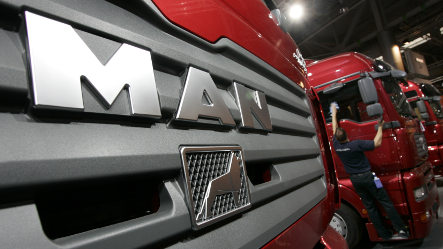The transaction, part of a “long-term strategic partnership”, would involve a capital increase in the Chinese group and was worth €560 million ($787 million) in all, a joint statement released by MAN said.
MAN would pay a 21-percent premium over Sinotruk’s 60-day trading average on the Hong Kong Stock Exchange, it added.
Sinotruk is owned by the China National Heavy Duty Truck Corporation, which first began buying technology from MAN in 1984.
The deal combines “advanced technologies and engineering know-how developed by MAN in Europe and Sinotruk’s existing manufacturing platform, local expertise and extensive sales network in China,” the companies said.
Under terms of the deal, Munich-based MAN is to licence its TGA truck technology, including engine, chassis and axles technologies, as a basis for the production of a new heavy-duty truck series.
MAN chief executive Hakan Samuelsson was quoted as saying that the German group’s investment in Sinotruk “lays the foundation for the joint development of a new heavy truck series tailored to emerging markets.”
Sinotruk chairman Chunji Ma saw the deal as a way to “maintain our position as one of the leading heavy truck manufacturers.”
The Jinan-based company last year posted revenue of about €2.5 million and core earnings of €122 million.
Like western competitors, MAN has suffered from the collapse of global markets for heavy trucks, although sales of its diesel motors and turbo chargers have been more stable.
The German group, number three worldwide among heavy truck manufacturers, welcomed the chance to “gain a sustainable foothold in China”, the world’s largest and fastest growing truck market.
Investors also welcomed the deal, and MAN shares shot up by 3.52 percent to €45.94 in midday Frankfurt trading, while the DAX index of leading shares was 1.74 percent higher overall.
Meanwhile, MAN and the Swedish group Scania, both of which have Volkswagen as a major shareholder, continue to be the objects of merger rumours.



 Please whitelist us to continue reading.
Please whitelist us to continue reading.
Member comments